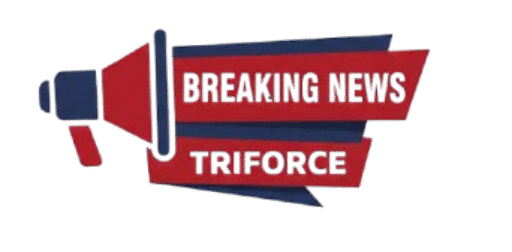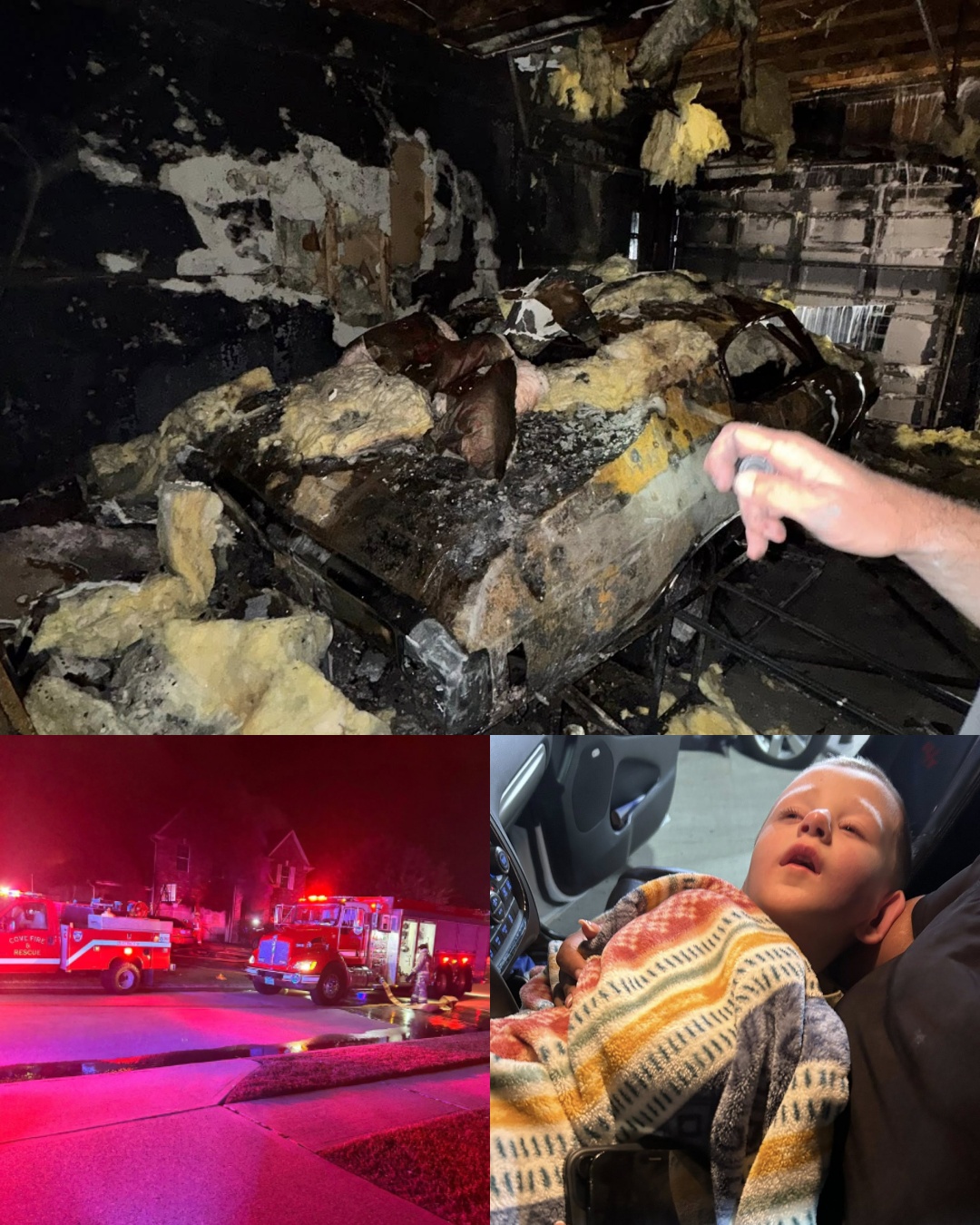The night before Halloween will never be the same for our family again. It was supposed to be just another quiet evening at home — the kind where the world slows down and the only sounds you hear are the hum of the oxygen machine, the clicking of the nurse’s shoes down the hallway, and the soft flicker of a candle in the kitchen window.
But at 7:30 p.m., our world went up in flames.

A Normal Night — Until It Wasn’t
That Thursday evening began like countless others. The air outside carried the crisp, sweet chill of late October, and through the window, I could see jack-o’-lanterns glowing on porches down the street. Kids in costumes were running from door to door for early trick-or-treating events. Inside, our home felt safe — full of warmth, the scent of dinner lingering in the air, and the faint buzz of the oxygen tanks in the corner of the living room.
We had just welcomed our new night-shift nurse earlier that week. It was only her second night working with us, but already she had fit in like family. Her calm presence was reassuring — the kind of calm that keeps the world steady when life around you begins to shake.
None of us knew that, within the hour, she would save our lives.

The First Signs of Smoke
Around 7:30 p.m., I was in the bedroom, trying to settle down after a long day. The nurse was in the kitchen, updating some notes. Everything was quiet — eerily quiet — until I heard her voice, sharp and urgent:
“Do you smell that?”
At first, I didn’t. Maybe it was just the heater kicking in, I thought. Maybe the smell was coming from outside — someone burning leaves or lighting an early Halloween bonfire. But then I saw it — the faintest wisp of gray smoke curling up along the ceiling near the hallway light.
And in that split second, everything changed.

The Fire Spreads
The smoke thickened fast — too fast. Within moments, it wasn’t just smoke; it was fire. The walls began to glow orange at the edges, and the air grew heavy with heat and panic. I could hear the soft, terrifying
crackle — the sound of our life burning.
The nurse didn’t hesitate. She ran toward me, voice steady but urgent, already calling 911.
“We need to get out — now!”
She grabbed what she could, her training kicking in with terrifying precision. I barely remember the next few moments — the rush of air, the sting of smoke in my lungs, the way time seemed to slow as adrenaline took over.
There were oxygen tanks in the house — heavy, metal cylinders lining the wall by the bed. It hit me then just how dangerous this was. If the fire reached them, the entire house could explode.
The nurse knew it too. She pulled me by the arm, guiding me toward the door even as the heat pressed closer from behind.
We stumbled out onto the lawn just as the first window shattered.

Two More Minutes
Later, when the fire department arrived, one of the firefighters told us something that chilled me to the core.
“If you’d been in there for two more minutes,” he said, shaking his head, “we wouldn’t be talking right now.”
Two minutes. That’s all that stood between us and death.
It’s impossible to describe what it feels like to stand barefoot on your own front lawn, watching the place you built your life — every memory, every photo, every piece of yourself — being devoured by flames.
Neighbors began to gather, their faces illuminated by the orange glow. Some brought blankets. Others just stood silently, unable to speak.
I could still hear the sirens approaching in the distance, echoing through the night like a desperate prayer.
The Firefighters’ Battle
Within minutes, the fire trucks surrounded the house — red lights flashing, men and women in heavy gear shouting commands to one another. Hoses snaked across the yard, spraying torrents of water that hissed as they hit the fire.
Our local fire department, along with crews from surrounding towns, fought the blaze with everything they had. But the fire was relentless. Oxygen tanks exploded inside, sending bursts of light and sound that made the crowd flinch.
We watched as the roof gave way. The beams cracked, then collapsed inward. The nurse held onto me tightly, whispering that we were safe, that things could be replaced, but people could not.
She was right.
Still, watching your home burn feels like losing a piece of your soul.

After the Flames
By the time the last flames died out, the house was gone. Nothing but a blackened skeleton remained — the outline of what used to be our kitchen, the faint shape of the staircase, the ashes where photos once hung.
The firefighters stayed long after the blaze was under control, making sure nothing reignited. When one of them finally approached us, his face smudged with soot, he spoke softly.
“It’s a total loss,” he said. “We’ll have to tear it down to the studs.”
I nodded, numb. My mind was somewhere else — back inside the house, remembering the laughter that once filled those walls, the smell of morning coffee, the gentle hum of the oxygen machine that had become the rhythm of our days.
It was all gone. Every blanket, every memory, every trace of the life we had built — gone in under an hour.
But we were alive. And that, we kept reminding ourselves, was everything.

The Miracle in the Flames
As the shock began to fade, gratitude took its place.
Our nurse — our guardian angel in scrubs — had noticed the smoke before anyone else. She had stayed calm, reacted instantly, and refused to panic. Without her, we might not have made it out.
She didn’t just do her job; she saved our lives.
That night, sitting in the back of an ambulance while firefighters checked our oxygen levels, I held her hand and said through tears:
“You were meant to be here. God sent you to us.”
She smiled softly and shook her head, tears in her own eyes.
“No,” she said. “I was just doing what anyone would do.”
But not everyone would have been there, watching so closely, so ready to act.
Her timing — her courage — was divine intervention.
And in the middle of all the destruction, I found myself whispering over and over again:
“Thank you, Jesus. Thank you for keeping us safe.”

The Days After
In the days that followed, reality set in. The house was declared uninhabitable. What little remained inside was unsalvageable. Smoke and water damage had claimed everything the fire hadn’t.
We had nowhere to go — not yet, at least. Friends and neighbors opened their doors without hesitation. People we barely knew showed up with food, clothes, blankets, and even toys for the kids.
The kindness was overwhelming.
Online, messages poured in. Our phones vibrated nonstop with texts, prayers, and donations. Strangers reached out to offer what they could, reminding us that even in tragedy, humanity shines the brightest.
It was humbling to see how much love surrounded us — love we hadn’t even known was there until we needed it most.

Starting Over
The insurance adjusters came. The formalities began — endless phone calls, lists of lost items, meetings with contractors. Words like “displacement,” “rebuild timeline,” and “structural damage” became part of our daily vocabulary.
We were told it would take at least six months before we could move back in. Maybe longer.
Six months. Half a year of borrowed beds and temporary addresses. Six months without the place we called home.
But through it all, one phrase became our anchor:
“It’s just stuff. We’re okay.”
And it was true. The clothes, the furniture, the photographs — they could be replaced or at least remembered. What mattered most was that every single one of us had made it out alive.
The house had burned, but we had not been broken.

Community and Gratitude
Our community — both local and online — stepped up in ways we could never have imagined.
The local fire department not only fought the blaze but returned days later to check on us, to make sure we were coping, to help us understand what had happened. Neighbors organized fundraisers and meal trains. Kids from down the street made cards that said things like “We’re glad you’re safe!” with drawings of hearts and firefighters.
Every small gesture felt enormous.
For the first time, we understood what it truly meant to be part of a community — to be held up by others when your world has collapsed.

Faith Through Fire
In the quiet moments that followed — those long, sleepless nights when the smell of smoke still lingered in our clothes and hair — I found myself turning to prayer more than ever before.
I thanked God for the nurse who had been placed in our path at exactly the right time.
I thanked Him for the firefighters who risked everything to save what they could.
And I thanked Him for sparing our lives.
It’s strange how tragedy can strip away everything unimportant, leaving behind only what truly matters. Faith. Family. Love.
Those are the things fire cannot burn.

Moving Forward
Now, weeks later, the ashes have cooled. The debris has been cleared. The foundation remains — a reminder that, even after destruction, rebuilding is possible.
We’ll be displaced for months, yes. There will be paperwork, frustration, and moments when grief sneaks in unexpectedly. But there will also be laughter again. There will be warmth again.
And when our new home stands where the old one once did, it will carry a story — one not of loss, but of survival.
A story about the night before Halloween, when everything we owned turned to ashes, and yet we walked away with the only things that truly mattered: our lives, our faith, and the love of the people around us.

To Everyone Who Helped
To our nurse — our hero — we owe you everything.
To the firefighters who ran toward the flames when everyone else ran away — we thank you from the depths of our hearts.
To our neighbors, our friends, and the strangers who reached out — your kindness will never be forgotten.
And to anyone reading this, wondering what they would do in the face of disaster — remember this:
Life can change in minutes.
Everything you own can be taken away, but love, courage, and faith will always remain.
We lost our home, but not our hope.
We lost our belongings, but not our blessings.
Because at the end of it all, as we stood in the cold October night watching the last embers fade, one truth echoed in our hearts louder than the crackle of the fire:
“It’s all just stuff. We are okay.”




